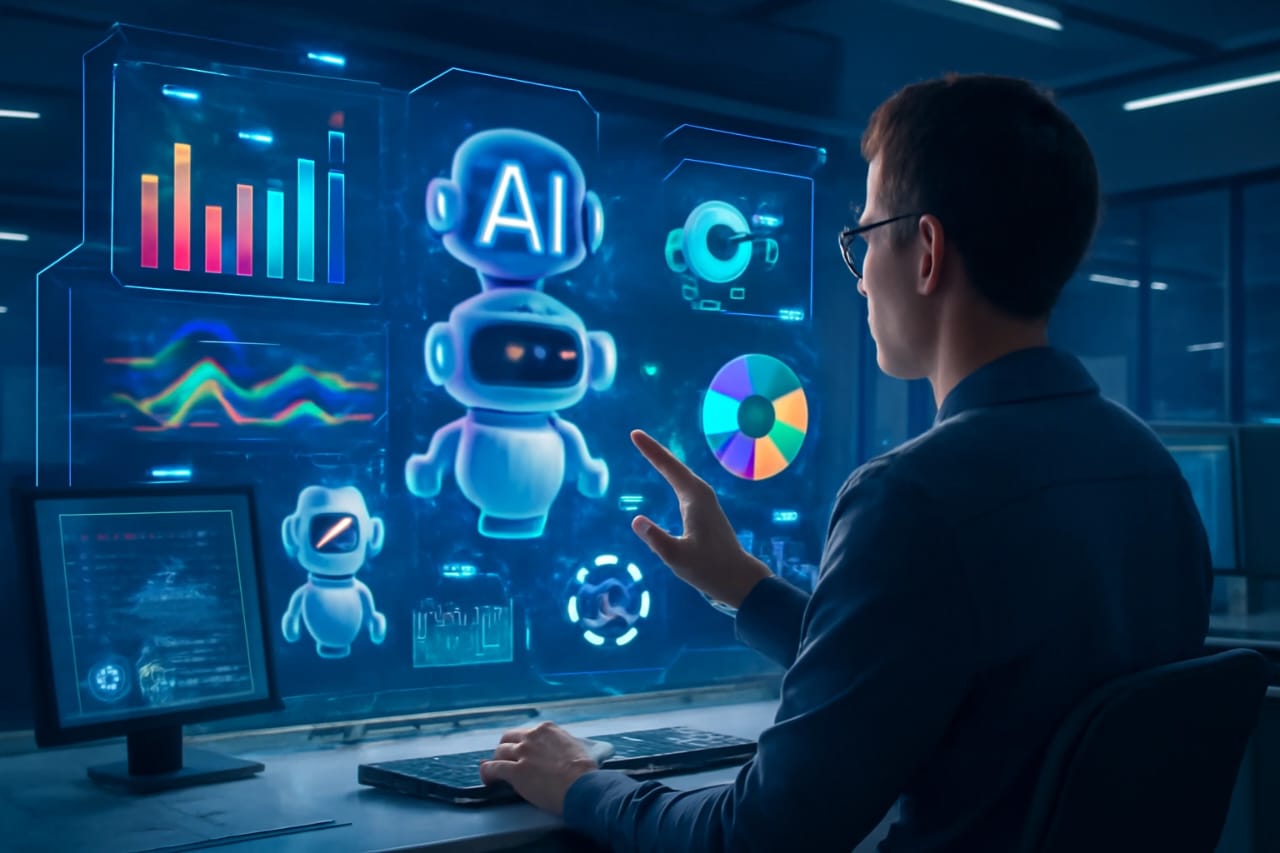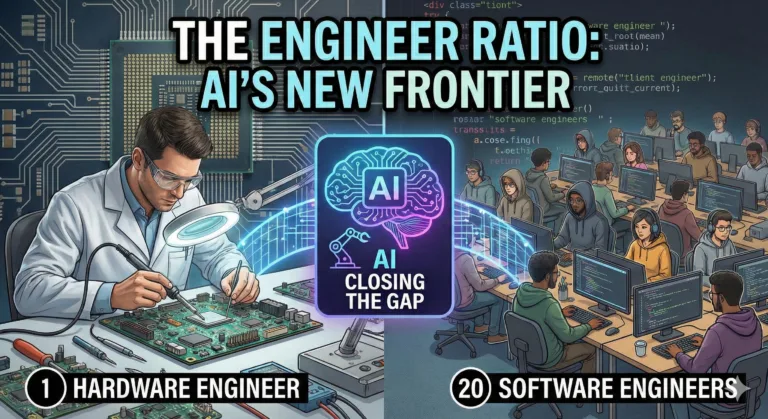Artificial intelligence (AI) is no longer just a buzzword or futuristic concept for engineers—it is reshaping their roles and the entire engineering landscape right now. Recent surveys show that 67% of engineers report their jobs are actively evolving due to AI, and a striking 85% are motivated to upskill to stay ahead in this rapid transformation.
These figures are not abstract statistics for many of us in the field; they tell the story of a professional reality lived daily. As an engineer working closely with power systems and technology advancements, the integration of AI-driven solutions has moved from experimental to essential, transforming how problems are solved, designs are created, and operations are managed.
This Engineers Day, it feels profoundly relevant to explore how AI has gone beyond the realm of automation to become a catalyst empowering engineers with unprecedented capabilities. The impact reaches every corner of engineering—from smarter manufacturing and innovative digital twins to sustainable energy solutions. AI is not just changing what engineers do; it is expanding what they can achieve. This isn’t merely a technological shift but a fundamental reimagining of engineering’s purpose and potential for the future.
How AI Is Revolutionizing Engineering Across Industries ?
Since the last decade, AI has steadily transitioned from experimental projects to integral tools that redefine engineering across diverse fields. In 2025, this transformation has accelerated, with engineers reporting a significant shift in their workflows and the very nature of engineering problems they tackle.
Manufacturing and Automation
One of the most profound impacts of AI is seen in manufacturing, where smart factories now leverage AI-driven robotics and automation systems. For instance, Siemens’ Amberg Electronics Plant uses AI-powered predictive maintenance to monitor over 1,500 machines, reducing downtime by nearly 30% and cutting maintenance costs by 25%. AI algorithms optimize production lines to reduce waste and energy consumption, contributing to sustainable manufacturing practices.
Generative design tools like Autodesk’s Fusion 360 are transforming product development by enabling engineers to generate thousands of design options that meet specific constraints such as material strength and cost. General Motors used generative design to create lighter, stronger vehicle parts, reducing weight by 20% and improving fuel efficiency without compromising safety.
Energy and Power Systems
In the energy sector, AI is transforming grid management and power generation. For example, India’s ReNew Power employs AI-driven smart grids that optimize renewable energy use and grid stability. This has improved energy efficiency by about 15% and lowered operational costs by 20%.
Digital twins created by companies like GE Digital simulate power plant equipment such as turbines or gas compressors, allowing engineers to predict failures and schedule maintenance efficiently. A GE customer reported a 10% increase in turbine availability after implementing AI-based digital twin technology, enhancing overall plant performance.
Infrastructure and Civil Engineering
AI is also revolutionizing infrastructure management. For instance, Singapore’s Smart Nation Initiative uses AI-powered sensors embedded in bridges and roads to monitor structural integrity continuously, enabling predictive maintenance and preventing catastrophic failures.
In traffic management, Barcelona implemented an AI-driven smart traffic control system that reduced congestion by nearly 20%, improving commute times and lowering emissions. AI-powered design tools are speeding up construction planning. Bechtel, a global engineering company, uses AI to optimize project scheduling and cost forecasting, improving efficiency and reducing delays on large infrastructure projects.
Healthcare and Biomedical Engineering
Healthcare is seeing AI-enabled engineering breakthroughs as well. For example, in prosthetics, companies like Open Bionics use AI-powered generative design to create customized, affordable prosthetic limbs rapidly suited to individual users.
AI diagnostics are changing device design and healthcare delivery. Butterfly Network’s handheld ultrasound device uses AI to assist operators in acquiring and interpreting images, making advanced diagnostics accessible in remote regions. AI also accelerates drug delivery system designs; Novartis leverages AI to model and optimize new pharmaceutical formulations, reducing time-to-market.
These real-world examples showcase how AI translates data and theory into tangible engineering advancements across multiple industries. They highlight measurable benefits—such as downtime reduction, energy efficiency, project acceleration, and customized healthcare—that define AI’s sweeping influence in 2025.
My Views :The Conclusion
As I see it, AI is not just transforming engineering—it’s redefining what it means to be an engineer today. The shift demands we embrace new skills, stay curious, and collaborate with AI as a powerful partner in innovation. This change is exciting and full of promise, but it also calls for responsibility and adaptability. On this Engineers Day 2025, my message is simple: don’t fear the AI revolution—lead it, shape it, and use it to build a smarter, more sustainable future for all.
Discover more from WireUnwired Research
Subscribe to get the latest posts sent to your email.




